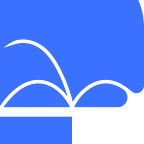Perspective — How I got a first class degree and what it taught me.
Perspective is a weekly content series at Pledre where we have conversations with people around their experiences with educational systems whether home or abroad.
For today’s entry, we had an interesting conversation with Nifemi Williams, a first class graduate from the University of Ibadan. She talks to us about how she got a first class degree and how that’s been helpful for her in navigating her career.
You studied Communications & Language Arts at the University of Ibadan. What was that like?
It was really interesting. I loved what I studied. I had amazing lecturers and course-mates and studied a course that I personally found exciting.
Everything about my course of study was cool but the University system was stressful; the processes involved in making a minor change or collecting something from the school could span for months or years.
I understand that you are a first class graduate and that’s no easy feat so how were you able to make that happen?
My family motivated me. I didn’t particularly have my sight set on graduating with a first class when I entered university. But at the end of my first year, I was on a first-class and there were just so many people around me encouraging me to keep at it especially my family and a couple of my lecturers. Their belief fueled me on and made me realize that I could actually do it.
Furthermore, I read a lot of books, did internships at three different organizations (even though interning was optional) and I gained technical skills by just telling people I wanted to learn from them. Most of what I did in school was just an application of the academic and the industry experience I gained outside the classroom.
You have to push yourself beyond the classroom. It doesn’t end there and you don’t expect your lecturers to tell you everything to a topic in the 1 hour classes you have. For instance, I can’t cram, so if I don’t understand something, there’s a tendency that I would forget. It’s my broad understanding of topics that helped me. I had to do my research to be sure I had enough to even put down in tests and exams.
Quick advice — If there’s a concept you want to learn e.g. metaverse, blockchain, marketing communications. Just delve into it head on no matter how confusing it might seem at the onset. Immerse yourself in enough materials from articles to books and videos and you’ll be able to start connecting the dots in time.
Nice! So does your course of study have any impact on what you do now?
Yes, it’s been really helpful. Communication is the lifeblood of all relationships and the Language Arts; listening, speaking, writing and reading are what I do everyday as I currently lead Operations at Pledre.
My role as the Chief Operating Officer is a managerial one which means I need to have an handle on organizational communication.
To do my job properly, I have to be able to effectively communicate with all stakeholders at Pledre from the executive team to employees. My background in Communication & Language Arts has really come in handy here.
Would you do anything differently if you could go back to the start of your degree?
I’d take as many online classes as I possibly can to gain more practical knowledge. Of course, online courses weren’t as popular back then but if I’d known what I know now…
Also, I’d chase opportunities a lot more. There are so many opportunities available to students and I wish I’d gone after more of them.
Would you be willing to sponsor someone to go through the same educational system you went through?
Hmm…I think I would be willing to sponsor anyone to achieve his or her dream regardless of the educational system but not without first offering the person better alternatives.
I would sponsor and tell the person not to be limited by the 13 weeks of lecture for a course, to explore opportunities and to be versed about happenings in the world as one could easily limit him or herself to just what is taught in school. It’s not like you’d be taught web 3.0, metaverse or blockchain in school.
Did you enjoy reading this? Check back next Friday for a new entry.
